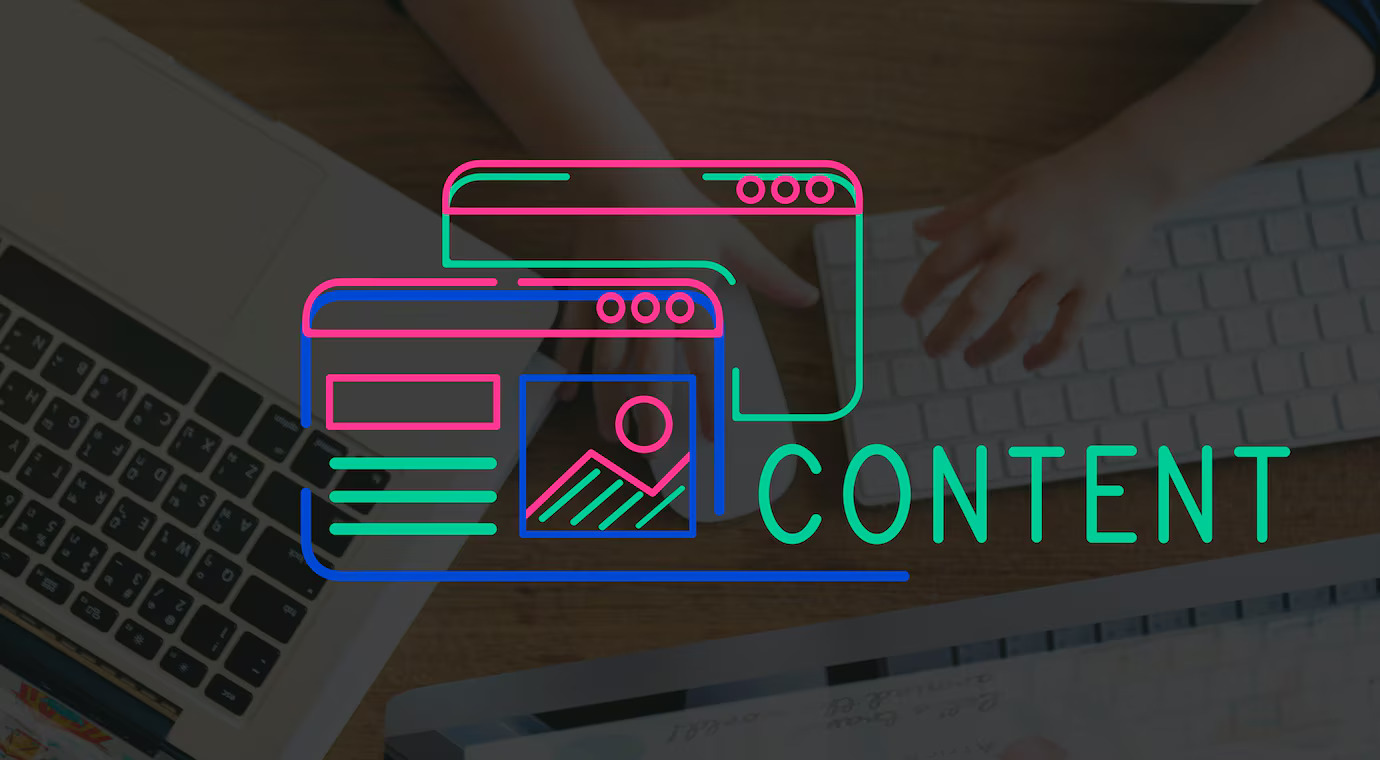
In the fast-paced world of digital marketing, one-size-fits-all content strategies no longer suffice. Today’s consumers expect personalized experiences tailored to their individual preferences and needs. In this blog article, we explore the significance of content personalization and how businesses can leverage it to maximize impact and drive meaningful engagement with their audience.
Introduction: Embracing the Era of Content Personalization
As consumers are bombarded with an abundance of content online, standing out amidst the noise requires more than generic messaging. Content personalization empowers businesses to deliver relevant and targeted content that resonates with different audience segments, fostering stronger connections and driving desired outcomes.
Understanding Audience Segmentation
- Demographic Segmentation: Divide your audience based on demographic factors such as age, gender, location, income, and education level. Understanding these characteristics helps tailor content to resonate with specific demographic groups.
- Behavioral Segmentation: Analyze audience behavior, including browsing history, purchase patterns, engagement with previous content, and interactions with your brand. This data provides insights into individual preferences and interests, enabling personalized content recommendations.
- Psychographic Segmentation: Explore audience psychographics, such as personality traits, values, attitudes, lifestyle choices, and motivations. By understanding the underlying psychographic drivers, businesses can craft content that speaks directly to the aspirations and desires of their audience.
The Benefits of Content Personalization
- Enhanced Engagement: Personalized content captures attention and resonates with audiences on a deeper level, leading to increased engagement rates and longer time spent interacting with your brand.
- Improved Conversion Rates: By delivering content that addresses specific pain points or interests of different audience segments, businesses can increase the likelihood of conversions and drive desired actions.
- Boosted Customer Satisfaction: Personalized experiences demonstrate that businesses understand and value their customers, leading to higher levels of satisfaction, loyalty, and advocacy.
Strategies for Effective Content Personalization
- Dynamic Content Creation: Develop dynamic content that adapts based on user interactions, preferences, and behavior. This could include personalized product recommendations, tailored email campaigns, or customized website experiences.
- Segmented Email Marketing: Segment your email list based on audience characteristics and interests, and deliver targeted email campaigns with relevant content and offers tailored to each segment.
- Personalized Website Experiences: Use website personalization tools to deliver customized content, product recommendations, and messaging based on user behavior, preferences, and demographics.
- AI-Powered Recommendations: Leverage artificial intelligence (AI) and machine learning algorithms to analyze user data and deliver personalized content recommendations across various touchpoints.
Content personalization
Content personalization is a strategy used in marketing and content creation to tailor content to the specific preferences, interests, and behaviors of individual users or audience segments. Rather than delivering generic content to a broad audience, content personalization involves customizing content to make it more relevant and engaging for each individual or segment.
This customization can take various forms, including:
- Customized Recommendations: Providing personalized recommendations for products, services, or content based on a user’s past interactions, preferences, or demographics.
- Dynamic Content: Adapting content in real-time based on user behavior, such as displaying different messages or offers depending on where the user is in the customer journey.
- Segmented Email Campaigns: Sending targeted email campaigns to different segments of your audience based on factors like demographics, interests, or past purchase history.
- Personalized Website Experiences: Tailoring website content, layout, and user interface elements to match the preferences and browsing behavior of individual users.
- Behavioral Triggers: Triggering specific actions or content based on user interactions, such as displaying a popup message when a user tries to exit the website or suggesting related articles based on what they’ve read.
Content personalization aims to enhance user experience, increase engagement, and drive desired outcomes such as conversions or sales by delivering content that is more relevant and valuable to the individual user. It leverages data analytics, machine learning, and automation technologies to collect and analyze user data, identify patterns and preferences, and deliver personalized content experiences across various channels and touchpoints.
Importance of Content Personalization in Business Growth
In today’s competitive marketplace, where consumers are inundated with an overwhelming amount of content, personalization has emerged as a crucial strategy for businesses to cut through the noise and connect with their target audience. Here’s why content personalization is essential for business success:
- Enhanced Customer Experience: By tailoring content to the specific preferences, interests, and needs of individual users or audience segments, businesses can create a more personalized and relevant experience. This leads to higher levels of engagement, satisfaction, and loyalty among customers.
- Improved Engagement and Interaction: Personalized content resonates more deeply with audiences, capturing their attention and encouraging interaction. When content speaks directly to their interests and addresses their pain points, audiences are more likely to engage with it through likes, shares, comments, and other forms of interaction.
- Increased Conversions and Sales: Content personalization can significantly impact the conversion rates and sales performance of businesses. By delivering targeted content that aligns with the needs and preferences of prospects, businesses can nurture leads through the sales funnel more effectively and drive higher conversion rates.
- Better Audience Segmentation: Content personalization requires businesses to understand their audience on a deeper level and segment them based on various factors such as demographics, interests, behaviors, and preferences. This leads to more precise targeting and allows businesses to deliver content that resonates with specific audience segments.
- Enhanced Brand Perception and Loyalty: When businesses deliver personalized content experiences, it demonstrates that they understand and value their customers as individuals. This fosters a stronger emotional connection and builds trust and loyalty over time, ultimately leading to increased brand advocacy and positive word-of-mouth.
- Optimized Marketing Spend: Personalized content allows businesses to optimize their marketing spend by targeting resources more effectively. Rather than investing in broad, one-size-fits-all campaigns, businesses can allocate resources to initiatives that are more likely to resonate with specific audience segments, maximizing the return on investment (ROI) of their marketing efforts.
- Competitive Advantage: In a crowded marketplace, personalized content can be a key differentiator for businesses, setting them apart from competitors who rely on generic messaging. By delivering tailored content experiences that meet the unique needs of their audience, businesses can gain a competitive edge and position themselves as industry leaders.
- Deliver Relevant Experiences: Personalized content ensures that each audience member receives content that is relevant and valuable to them. Whether it’s addressing their specific pain points, interests, or aspirations, personalized content demonstrates that businesses understand their audience and care about their needs.
- Increase Engagement and Interaction: When content resonates with audiences on a personal level, they are more likely to engage with it through likes, shares, comments, and other forms of interaction. Personalized content captures attention and fosters deeper connections with the audience, leading to increased engagement and brand affinity.
- Drive Conversions and Sales: Personalized content has the power to guide prospects through the buyer’s journey more effectively. By delivering content that speaks directly to their needs and interests at each stage of the journey, businesses can nurture leads and drive conversions with greater efficiency.
- Build Customer Loyalty: Personalized experiences foster stronger relationships with customers by demonstrating that businesses understand and value their individual preferences. This leads to higher levels of satisfaction, loyalty, and advocacy, ultimately driving long-term business growth.
To unlock the full potential of content personalization, businesses must invest in data analytics, audience segmentation, and content management technologies. By leveraging data-driven insights and automation tools, businesses can create scalable and efficient processes for delivering personalized content experiences across various channels and touchpoints.
By tailoring content to different audience segments, businesses can enhance the customer experience, drive engagement and interaction, increase conversions and sales, improve audience segmentation, foster brand loyalty, optimize marketing spend, and gain a competitive advantage in the market.
Conclusion: Elevating Your Content Strategy with Personalization
In today’s hyperconnected world, content personalization is no longer a luxury—it’s a necessity for businesses striving to cut through the noise and build meaningful relationships with their audience. By segmenting audiences, understanding individual preferences, and implementing personalized content strategies, businesses can unlock the full potential of their content marketing efforts, driving engagement, conversions, and long-term success. Embrace the power of content personalization to deliver memorable experiences that resonate with your audience and set your brand apart in a crowded digital landscape.




